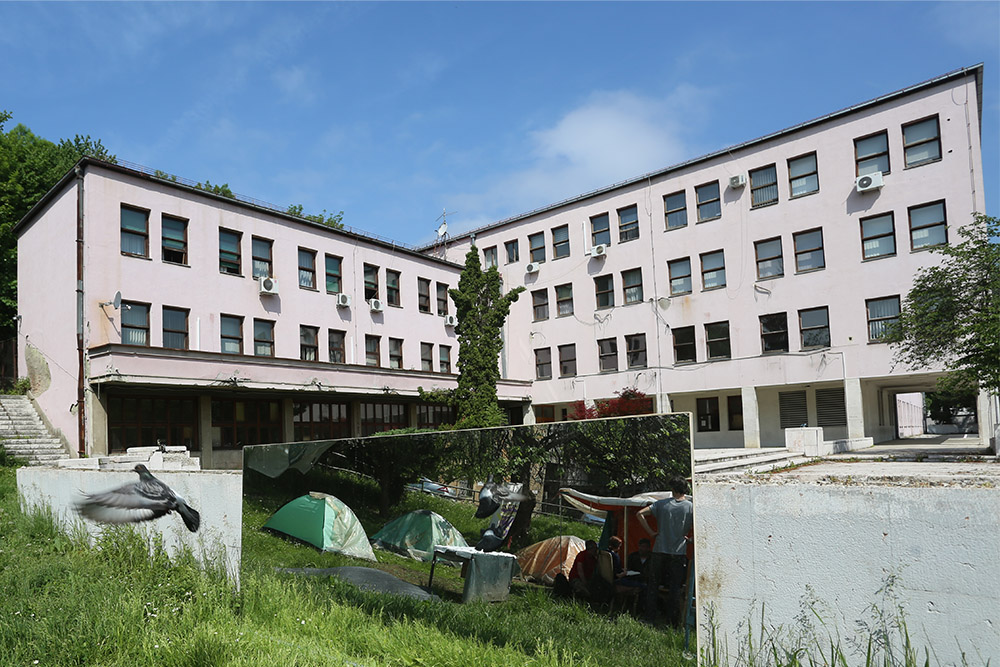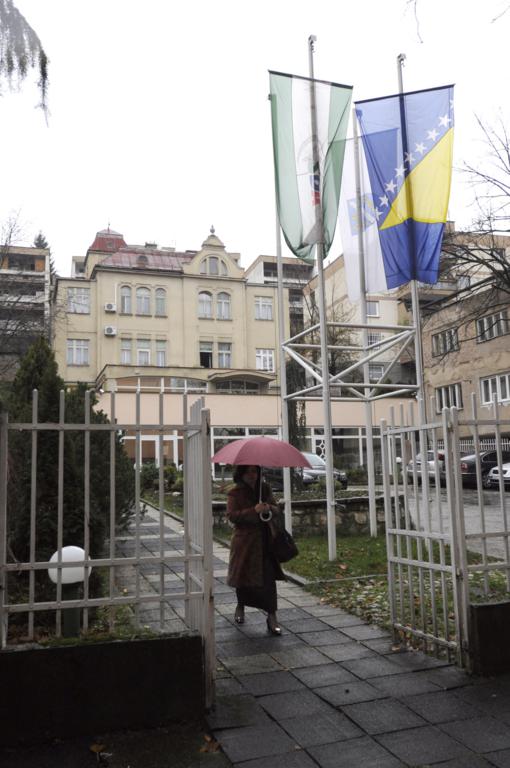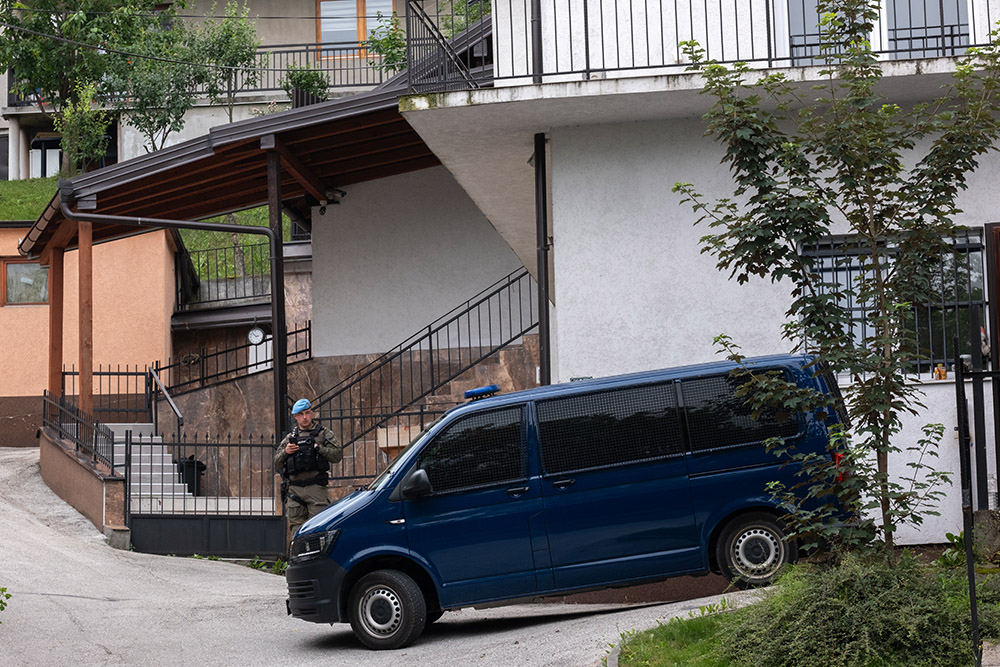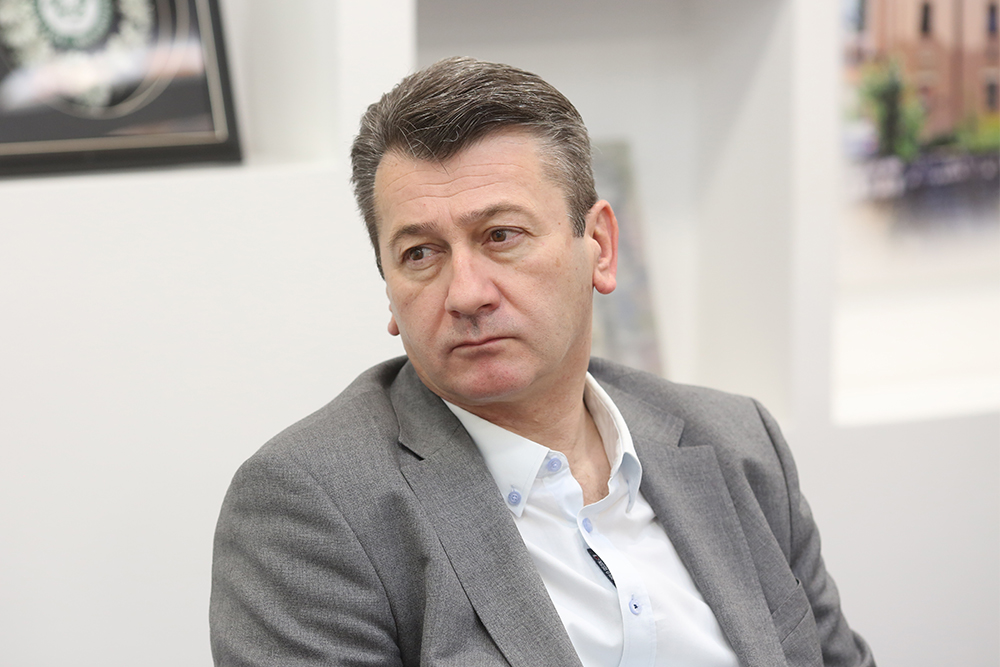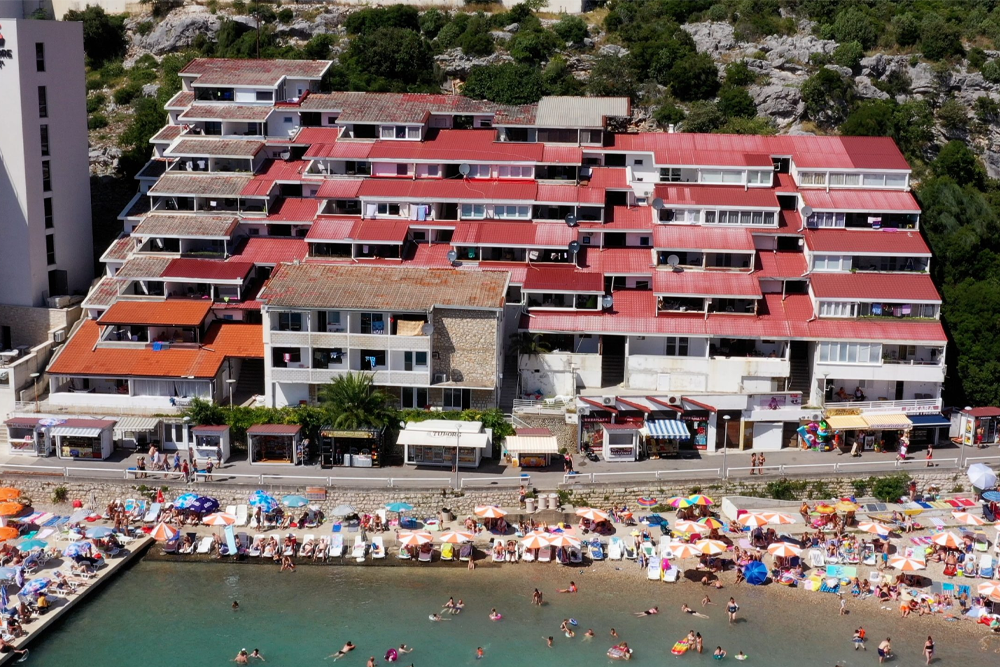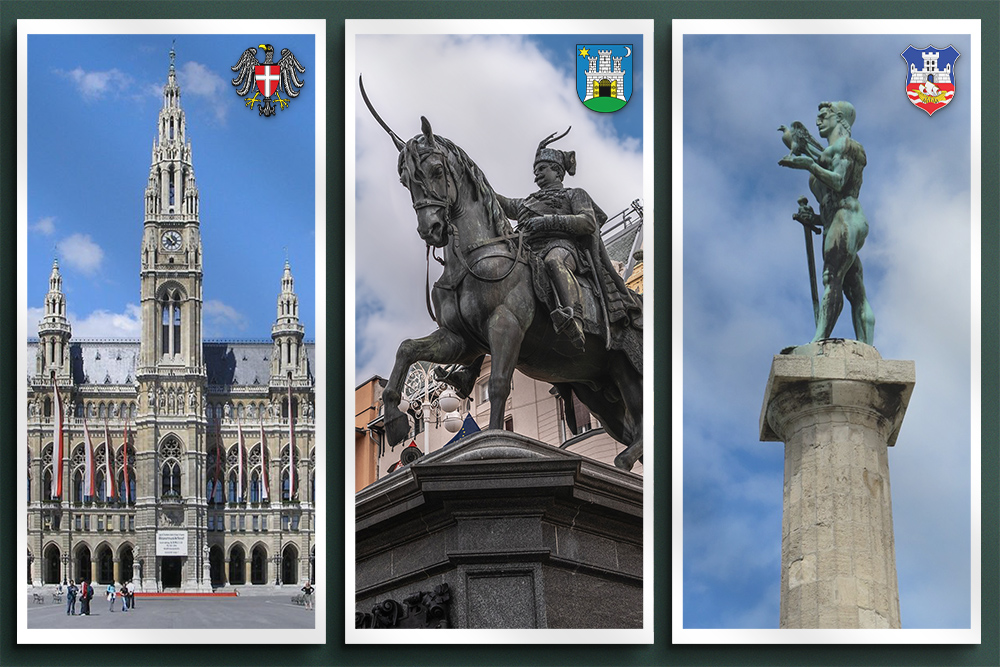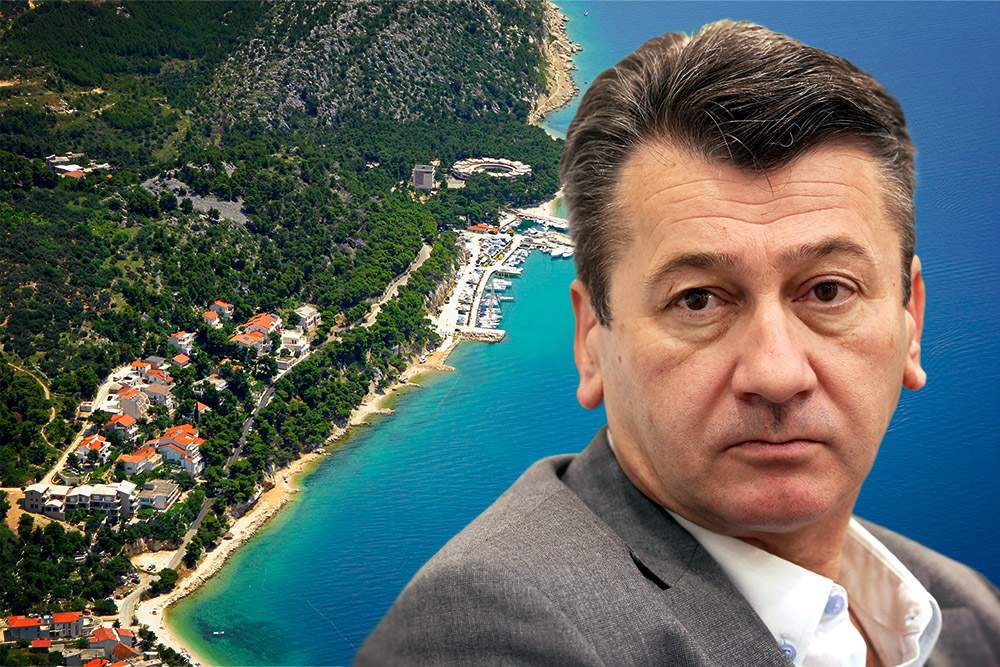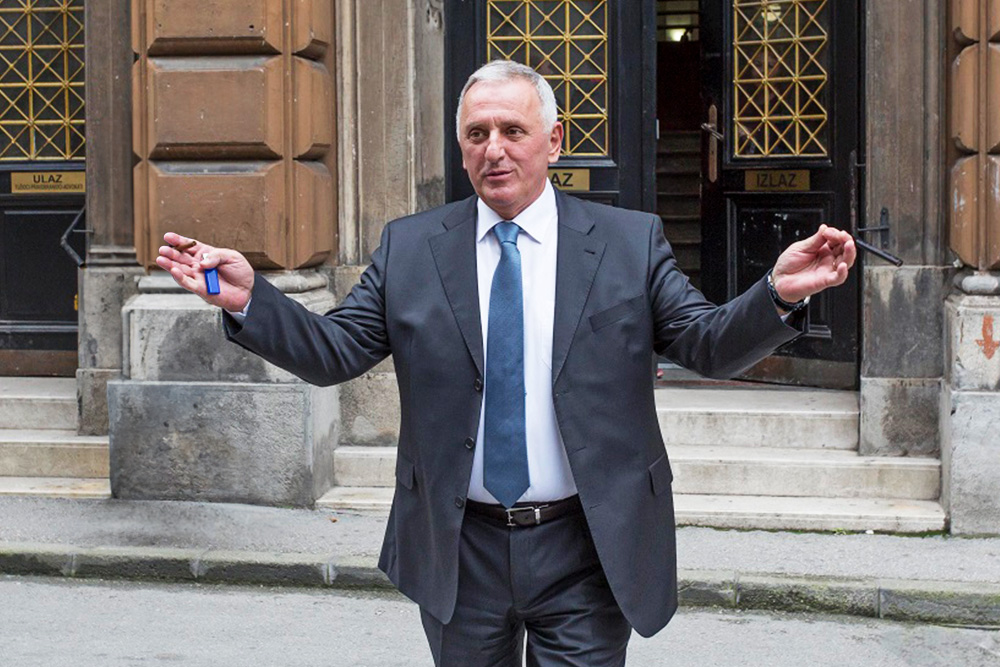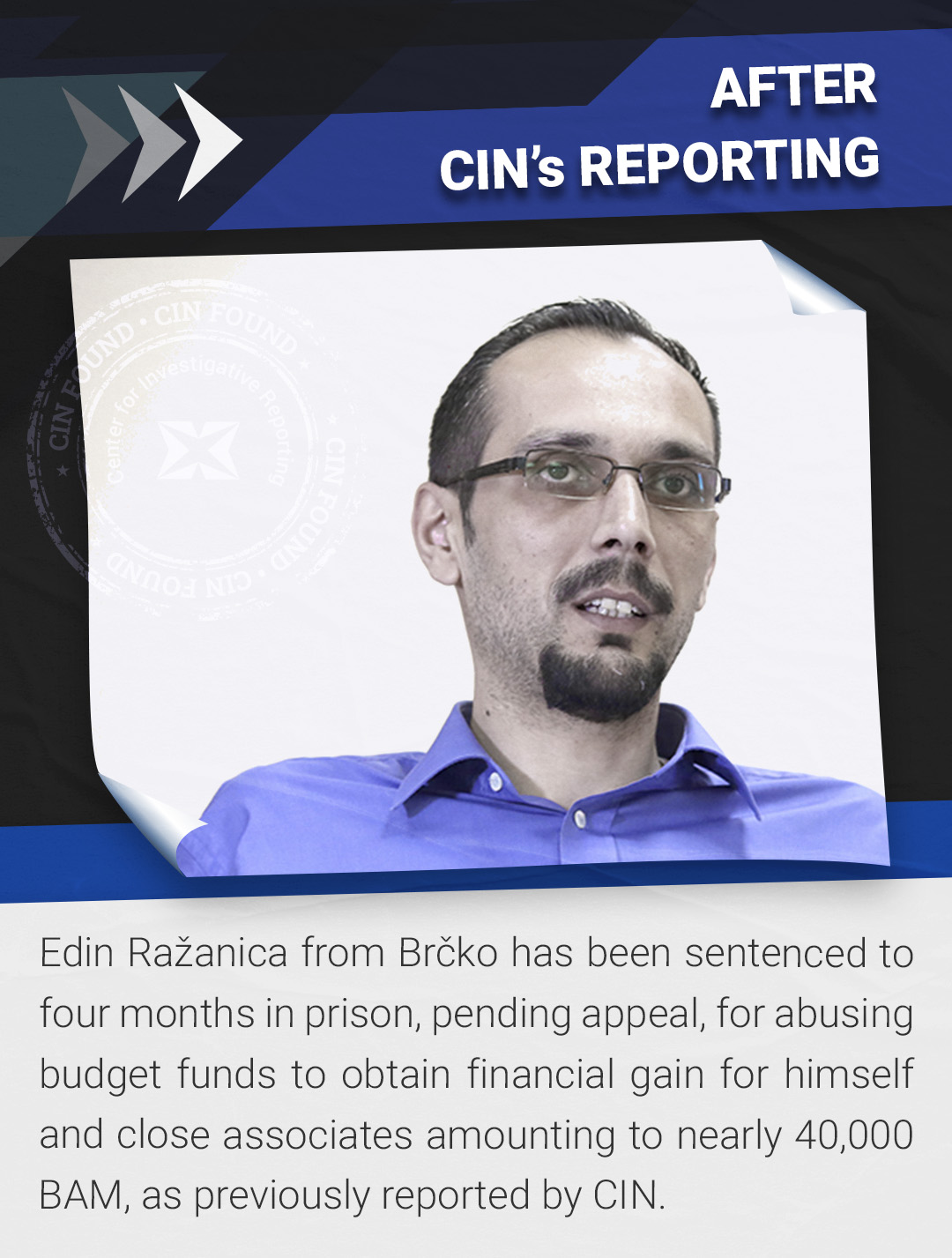Four leading political parties took advantage of confusing or missing property laws during and after the war in Bosnia-Herzegovina by purchasing land on favorable terms or otherwise appropriating valuable state property for long term use.
Reporters from the Center for Investigative Reporting in Sarajevo (CIN) have investigated how the Party of Democratic Action (SDA), the Serb Democratic Party (SDS), the Croatian Democratic Union (HDZ) and the Social Democratic Party (SDP) came to own or use buildings that according to the land records are state owned.
The parties have moved their organizations into these offices. SDS and SDP even rented some extra space in buildings to government entities.
BiH has not yet passed the Law on State Property which would define rights of ownership, however legal experts say that, even if such a law is passed, the state may not be able to take back property that has been given to others.
The BIHAMK Deal
In May 1994, SDA signed a contract with the BiH Motor Club (BIHAMK) to take over a 410-square-meter building at Mehmed Spaho 14 in Sarajevo. In exchange for the damaged building, at the time under state ownership, the party agreed to involve the Center Municipality. BIHAMK signed a contract with the municipality on Feb 4, 1995 in which the two sides traded buildings – the building at Mehmed Spaho for a building at Skenderija Street 25 (later changed to 23).
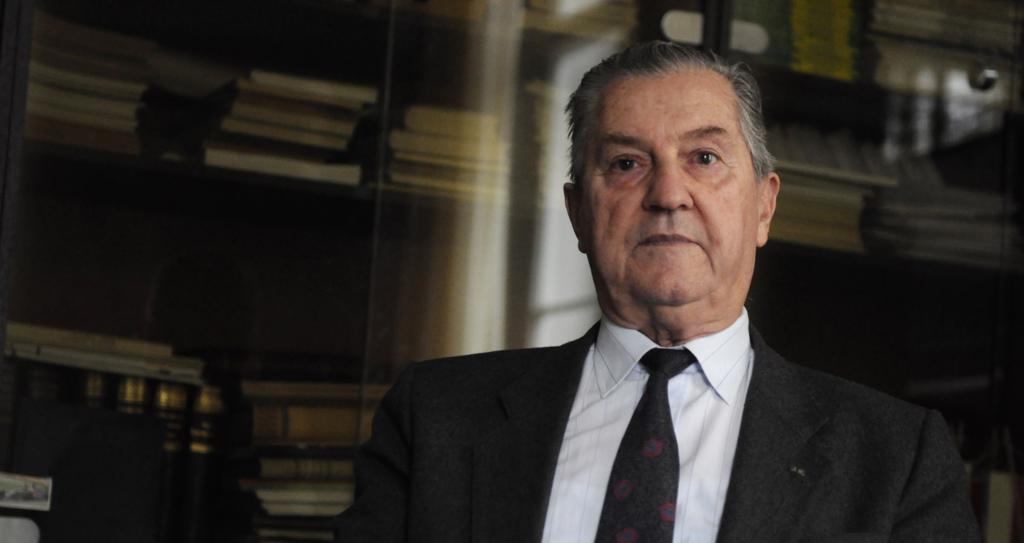
Photo by CIN
On the same day, the Center municipality concluded another contract with SDA, which created its headquarters in the old BIHAMK’s building. Abid Jusić, a high-ranking SDA member, headed the municipality at this time.
Mustafa Begić, a lawyer who at the time was director of the Land Registry of the Municipal Court in Sarajevo, said that the paperwork clearly shows that the municipality did not own the property and had no right to give it away.
‘The Center Municipality could have transferred the right of occupancy, but legally speaking, it could not have assigned it as long-term occupancy’ said Begić.
Amir Zukić, SDA Secretary General, said that such actions were allowed at the time. ‘That building was completely destroyed. We reconstructed it and that is our share that was completely in accordance with the positive legislation.’
Zukić says that SDA was given the building to use over a 99-year period.
‘Who knows what will happen. Only God knows what it will be like in the future. When our time runs out, we can ask the municipality for a new lease contract, that’s about all’ says Timur Numić, director of the SDA head office.
SDS Leased Offices to RS Government Agencies
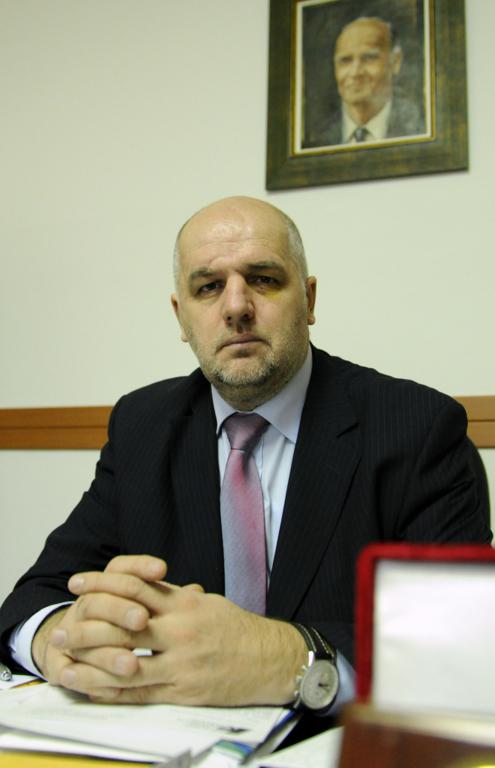
Photo by CIN
When SDS was in power in Prijedor in 1997, it took advantage of its position and gave itself a 442-square-meter state owned building at Branislav Nušić 1.
At a session on Dec. 8, 1997, the Prijedor Municipal Council, in which SDS held a majority, gave the party the right to use three quarters of the building, while the local union council was assigned the remaining quarter.
After registering as permanent owner in the land registry, SDS housed its office in a part of the building and rented out 130 square meters to government agencies. By February 2004, the space was leased to the RS Ministry of Defense, after which the RS Ministry for Refugees and Displaced Persons moved in. This ministry paid 86,472 KM to SDS between 2004 and January 2010.
CIN reporters checked the land records and found that the building is still state-owned while SDS was registered as a user in 1997.
SDS lost power in Prijedor in 2000 and Nada Ševo, from the Alliance of Independent Social Democrats, was elected the mayor. In May 2002 the Prijedor Municipality declared that the decision granting SDS permanent occupancy rights of the building was null and void. SDS appealed and District Court in Banja Luka overturned the decision in March 2003.
The municipality issued another decision in September 2007 requesting that the building be returned, to which SDS responded with a new suit before the District Court. In May 2008 the court it overturned the Prijedor municipality’s decision annulling the decision.
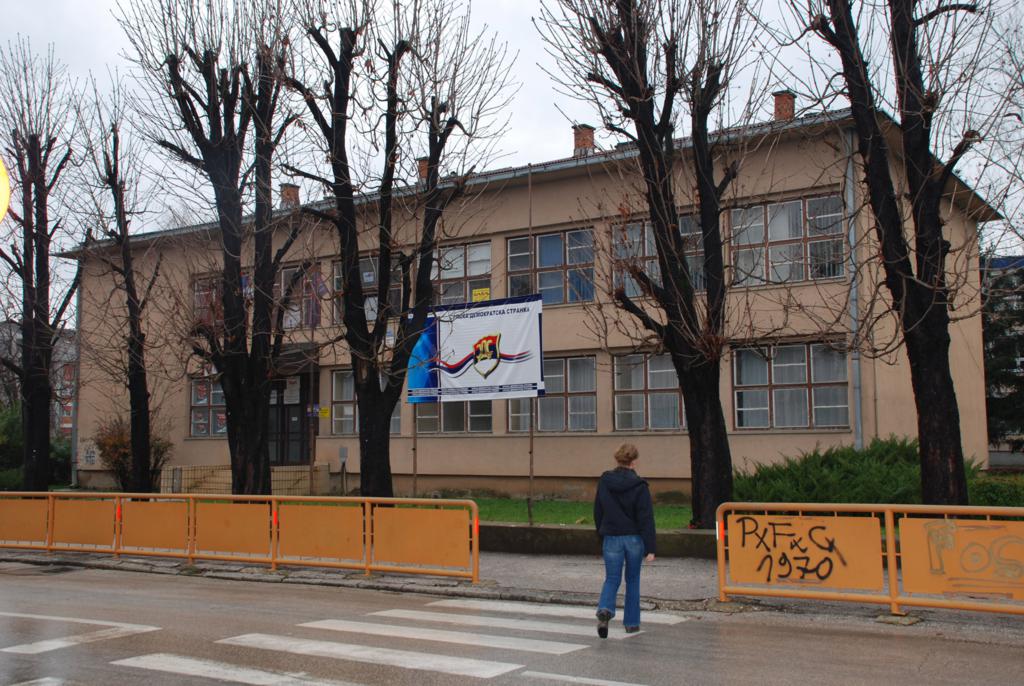
Photo by CIN
In response to this, the RS Office of Attorney General filed a request with the RS Supreme Court to review the verdict where the case still remains.
HDZ Wrote off HDZ’s Debt
A case in Mostar shows how city authorities, most of them HDZ and SDA members, enabled HDZ to become the owner of a downtown commercial building. The procedure was something of a mystery to the Central Election Commission (CIK) auditors, to whom the city failed to show complete paperwork. The city also refused to share the documents with CIN.
From September 1996 to March 2008, HDZ leased a commercial building on Knez Domagoj bb of about 697 square meters first from the municipality, and later from the city of Mostar,. HDZ paid nothing for the lease. Even though, the cost was fixed at 10 KM per square meter or 6,970 KM a month, the party agreed with city authorities to pay for renovations with the price of the work to be deducted from the lease.
In April 2008, the representatives of HDZ and the city signed a new agreement according to which HDZ was supposed to pay the city 690,030 KM in rent for the period of January 2000 to March 2008. The party paid 250,920 KM.
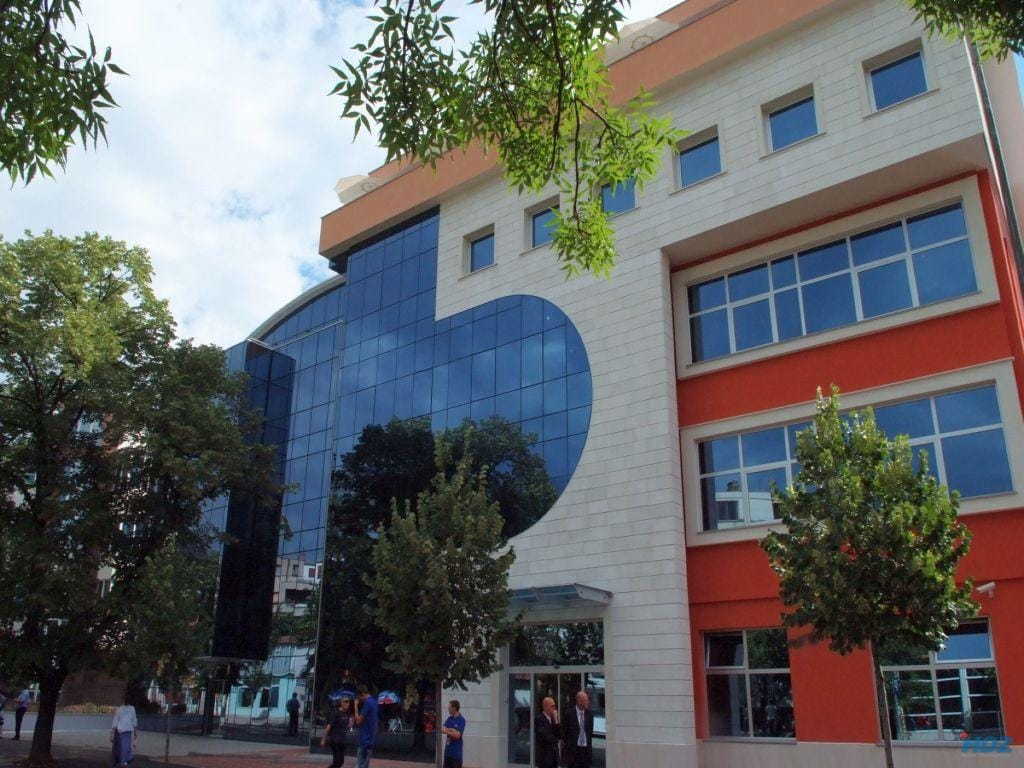
Photo by Seid Masnica
CIKs’ auditors found the agreement controversial because it let the party off the hook for all payments between 1996 and 1999. HDZ’s defense is that it could not use the offices during that period because of renovation.
CIK’s auditors could not establish whether HDZ had balanced the reminder of the 439,110 KM debt. HDZ did not report this debt in its financial reports, and Mostar city authorities failed to show how much money HDZ owed.
Just a month later, in May 2008, the town authorities sold the building to HDZ for 1,810,410 KM. The bill of sale specified that HDZ should only pay the difference between that and its investment in the renovations, or 718,106 KM.

Photo by Seid Masnica
According to Zoran Perić, SDP councilor in Mostar Town Hall, HDZ officeholders from the town hall justified the sale of the building, saying ‘the dead capital would not bring revenue into the town’s budget.’
Meanwhile, the town bought offices in Husnije Repca bb Street—250 square meters for 651,612 KM—to accommodate its Bureau for Spatial Planning.
‘The thing is that the town sold its 3-story building to HDZ, and at the same time bought 250 square meters for approximately the same price. That’s a clear-cut case of wresting from people, because this property belongs to the citizens’ said Perić.
However, HDZ officials say that there is nothing disputable or illegal about the sale of the building and that bringing up the issue was an attempt by opposition parties to score points.
An HDZ councilman on the Mostar Town Council, Davor Pehar, said that SDP occupied numerous buildings in Sarajevo under the pretext that it is the legal successor of the Communist party.
The Payment of Membership Fees as Proof of Ownership
For years SDP has used and rented offices in Sarajevo and Zenica that are registered as state property in land records. It’s the property of former Communist Party in BiH, which ended up in state’s hands following the 1994 Law on the Transformation of Socially-owned Property.
Considering that SDP is the legal successor of the Communist Party, this party says the property belongs to it because it had been built from the membership fees, not budget.
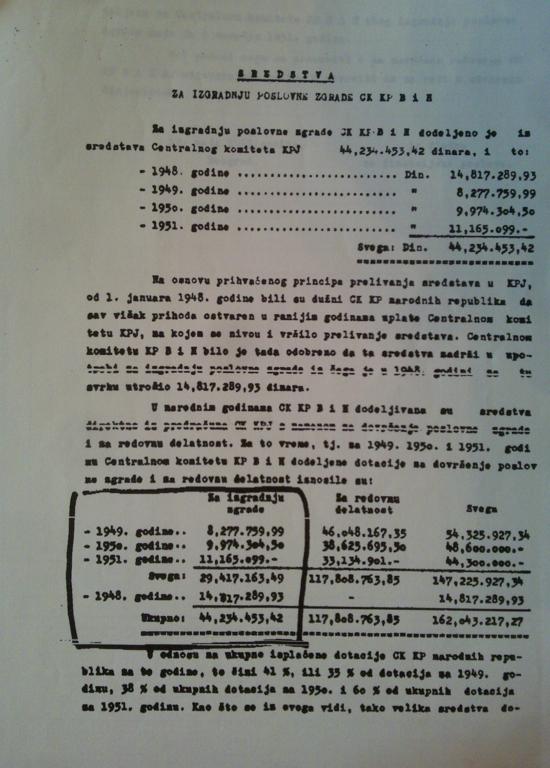
Photo by CIN
‘It’s not the whole property of the BiH Communist Party, because massive amounts of documents and evidence were destroyed during the war’ says Ferid Buljubašić, SDP’s business manager. He explained that this party began the procedure for proving ownership based on the documents about paid membership fees used to fund construction.
Dragica Miletić, deputy attorney general and a member of the Commission for State Property said that no one was disputing SDP as the successor of the Communist Party, but she said that the property was registered as belonging to BiH. ‘There is a ban on disposal of this property and this property is owned by Federal Republic of BiH, the Republic of BiH and now BiH. There is no dilemma here’
Buljubašić said that SDP has managed to register ownership of buildings in Sarajevo, Stolac, Livno, Tuzla and Jajce. There have been ongoing court cases regarding the building in which the FBiH government was housed in Sarajevo and a commercial building in Zenica, which SDP freely uses and rents to private persons, despite the fact that both buildings are recorded as state property in land records.
The FBiH government pays rent of a half million KM every year to SDP for the building of the former Central Committee of BiH Communist Party in Alipašina Street in Sarajevo. Apart from renting offices to lawyers and restaurants in the so-called Committee Building in Zenica, the party has annual revenue of 35,000 KM.
OHR’s Belated Ban
Paddy Ashdown, the International Community’s High Representative for BiH, enacted the Law on the Temporary Prohibition of Disposal of State Property of BiH in March 2005, which was later passed in the BiH Parliamentary Assembly. This law remains in effect until a Law on State Property is passed.
However, The Commission for State Property has failed drafting such a law for six years. Chairman Zvonimir Kutleša blames the competing positions of its members.
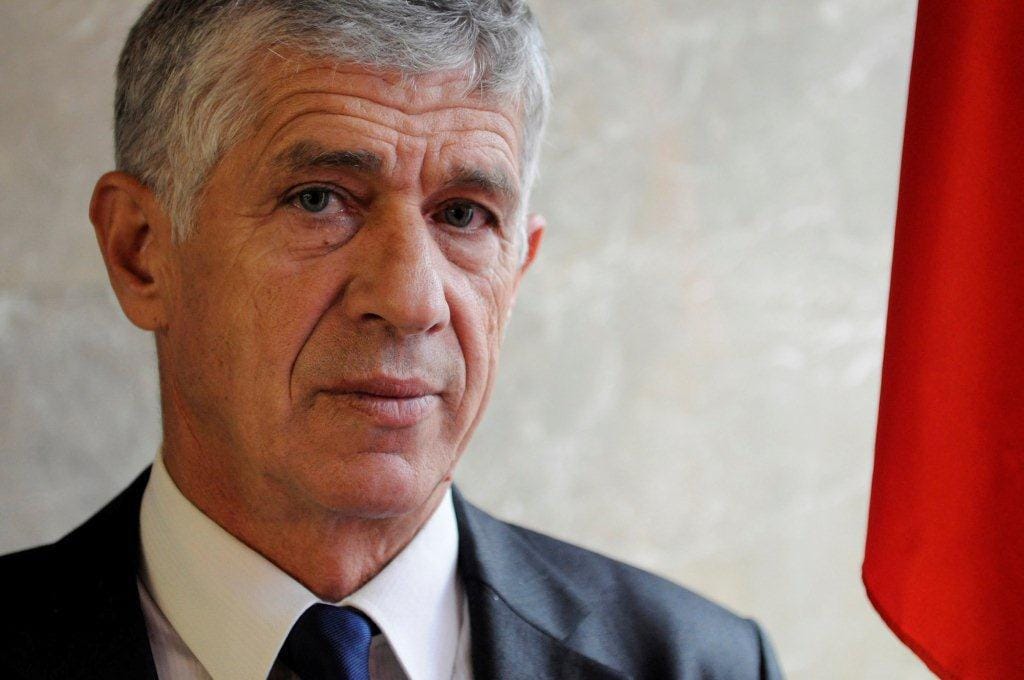
Photo by CIN
Kutleša says that even when the law is finally passed, it will not affect decisions already made. He said that contracts on state property should not be revoked because that would be seen as an attack on general and legal security.
Arif Nanić, deputy director of the Canton Sarajevo Agency for Privatization, said that these types of contracts are detrimental to the state and that the state should initiate proceedings in court to get out of them.

